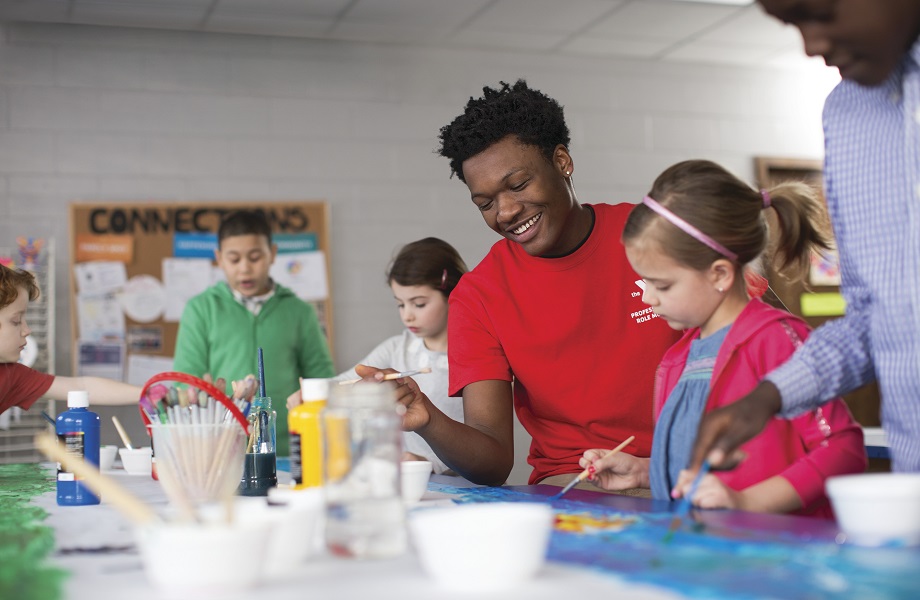Despite mounting pressure to start formal education sooner than ever, research shows that our youngest children benefit most from a fun, active learning environment that encourages them to explore the world around them.
This "Learning Through Play" philosophy best describes the Y's approach to early childhood learning at our YMCA Child Development Centers at Lake Buena Vista and Sherberth.
In fact, what looks like play is actually disguised learning as children interact with each other, explore new experiences, communicate, solve new challenges, practice new skills - and just have fun!
At the Y, we realize play critical is for children’s social, emotional, physical, and cognitive development. And through our research-based curriculum, we give kids plenty of opportunities to learn, grow, and thrive while preparing them for kindergarten and beyond.
Here are just a few of the ways we make your child's day fun, interactive and enriched with learning:
- Circle time is a group gathering during which we share our ideas, plans, and observations. Circle activities are designed to stimulate youngsters’ thinking, enrich their social skills, and expand their attention spans.
- Gross–motor activities give children the opportunity to use their muscles as well as their imaginations as they engage in fun, healthy exercises, such as running, jumping, and climbing.
- Fine-motor activities help improve small-muscle development and eye-hand coordination. Some common items found in the fine-motor/manipulative area include puzzles, beads and laces, pegboards, crayons, and scissors.
- Art activities help youngsters creatively express their thoughts and feelings. They help reinforce fine-motor skills and concept development in areas such as colors, shapes, and size relationships.
- Dramatic-play activities help children express themselves, practice life skills, improve social skills, increase self-esteem, build vocabulary, and solve problems. And, well, dramatic play is just plain fun!
- Music activities promote youngsters’ listening skills, creative expression, and social skills. In music, children can explore sound, volume, tempo, and rhythm.
- Science activities offer children many hands-on opportunities for observation, exploration, investigation, making predictions, and experimentation.
- Sand and water activities allow youngsters to experiment with textures and the properties of different substances. These activities also promote the development of other skills, such as math, science, and language.
- Block play gives children experience with many different concepts, such as shape and size discrimination, spatial relationships, number skills, balance, organization, cause and effect, and classification. Cooperative play skills, problem-solving, and creativity are also promoted in block play.
- Storytime is designed to help youngsters develop an appreciation and enjoyment of literature. Reading activities enhance children’s vocabulary and comprehension skills, and also expand their knowledge base.
